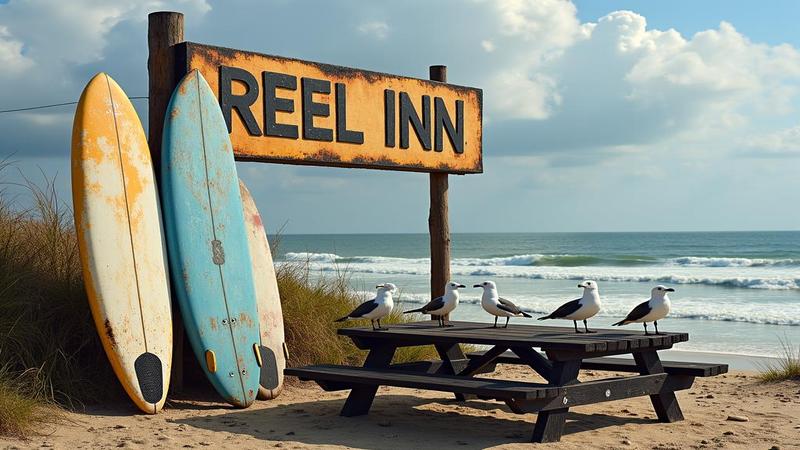Malibu Tells Beloved Fish Shack: Rebuild? Sure—As A Memory.

Malibu’s Reel Inn, the beloved fish shack where grease met grace at sunset, burned to the ground in the fires and then failed the final test: coming back to life without a venture capital term sheet. The city told it no. The flames were easier to negotiate with, largely because fire shows up on time and answers emails.
Officials cited a labyrinth of regulations conceived after the Trojan War and lightly updated for the Age of Instagram. You can’t rebuild there, they said, not unless your structure is 73% cloud, 18% remorse, and fully compatible with a dolphin co-op. They encouraged the owners to pursue “other opportunities,” like being a ghost.
I cover earnings calls, so I asked for guidance. The shack reported an EBITDA of warm memory and a cash flow of melted butter, offset by the rising cost of human nostalgia. The bond market shrugged, as it often does in flip-flops.
Insurance promised to make everyone whole, then clarified it meant spiritually. Actuarially, it offered a gift card to a place that wasn’t on fire, subject to a deductible the size of a yacht’s self-esteem. The policy’s fine print insisted the building be located exactly nowhere and also meet current codes for buildings that never existed.
Regulators suggested the owners upgrade to a fireproof commercial fryer hood that functions exclusively underwater. They proposed adding three exits, two entrances, and a portal to an alternative dimension where paperwork fills itself out and the county clerk applauds quietly.
Environmental rules entered the chat with the swagger of a pelican at brunch. Protect the views, they said, which currently include char, ash, and the haunting scent of calamari’s last stand. One clause requires any new restaurant to obtain informed consent from each fish, witnessed by a notary seahorse.

Residents held a beachside forum, which is Malibu for a therapy circle with parking validation. Half begged the city to preserve “the soul of the place,” and the other half insisted the soul be LEED Platinum and speak softly so as not to frighten the property values.
An activist investor attempted a SPAC merger with a kelp forest, promising to take the ambience public by Q3. The deck featured glossy photos of sunsets and a revenue model powered by wind, waves, and unclaimed sunglasses.
The owners produced a 400-page coastal zoning compliance binder that doubles as a coffee table and triples as a leg day. The city responded by requesting a shorter version, ideally a blank page that whispers, “We’re good,” in municipal cursive.
Meanwhile, climate change released a statement through a spokesperson made of smoke, reminding everyone it will continue to do quarterly beat-and-raise surprises until the ocean files Chapter 11. Wall Street loved the guidance; Main Street would like shade and a sandwich.
I asked where people are supposed to go for fish and forgiveness now. A councilmember gestured at the horizon, where the sun was doing its daily IPO, and recommended meditation, a food truck on a different parcel, and the resilient protein known as wistfulness.
In the end, Malibu preserved the coastline’s character by removing one of its characters. The fire ate the building, and the bylaws licked the plate. The Reel Inn can’t rebuild, but don’t worry: the memory of the best fried fish is now fully permitted, ADA compliant, and open daily—right between the ash and the fine print.
